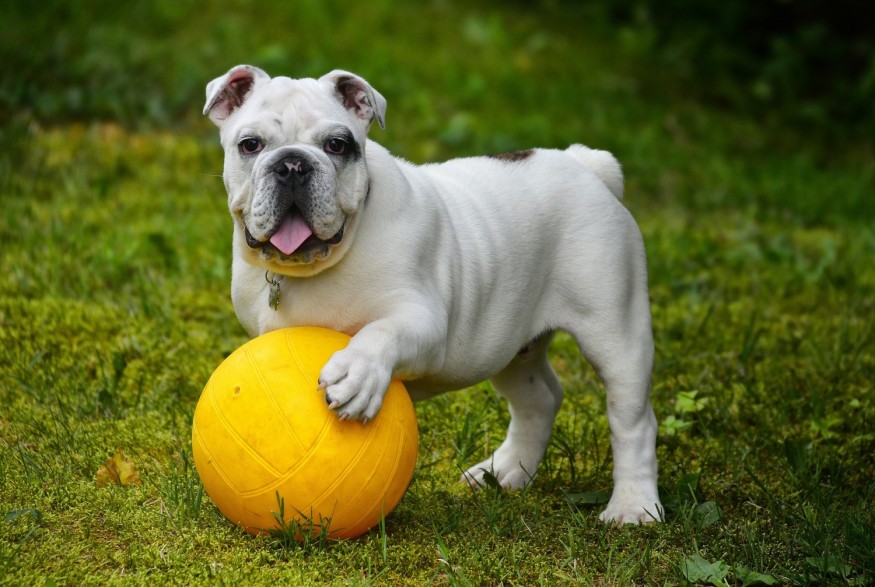According to a new research, dog feces and urine are being dumped in such large numbers in nature reserves that it is likely to harm animals.
New study reveals that footpaths might overfertilize the earth with nitrogen and phosphorus to amounts banned from agriculture.
The researchers arrived at these results after counting dog counts in four Belgian nature reserves on the outskirts of Ghent for 18 months. Across Europe, which is home to around 87 million dogs, they said, the situation would be similar.

According to local news KSN, dogs are fed at home and then excrete nutrients while on walks, leaving an average of 11kg of nitrogen and 5kg of phosphorus per acre every year.
There is a similar amount of nitrogen in the air that comes from farming, industry, and traffic emissions, ranging from 5 to 25 kg; thus, the impact of dog feces and urine is substantial.
Many dog walkers believe that letting their pet's feces out in the open will not affect the environment. On the other hand, overfertilization diminishes biodiversity by enabling a few healthy plants, such as nettles and hogweed, to push out others and the species that depend on them, resulting in a loss of biodiversity.
Related Article : Company Forced to Recall Pet Food After Testing Positive of Salmonella Contamination
Extensive Studies
The study's leader, Prof Pieter De Frenne of Ghent University, remarked, "We were startled by how high the nutritional intakes from dogs maybe. Agriculture, industry, and transportation inputs to the atmosphere deserve a lot of legislative attention, but dogs are completely ignored in this regard."
In instances where dogs must be kept on leashes and can only stray 2 meters each side of a walkway, the researchers calculated the prohibited amounts of nitrogen and phosphorus.
He saw no reason why the situation in Ghent would be different from that in many other countries in western Europe because the amount of dog ownership is relatively comparable. "One of the greatest risks to our wild plants, lichens, and fungi, yet nothing is being done to confront it," according to the British charity Plantlife.
According to the study, more than 1,600 dogs were counted during 500 trips to nature reserves, at all hours of the day and on all days of the week, which was published in the journal Ecological Solutions and Evidence.
They merged this information with the known quantities of nitrogen and phosphate excreted by dogs to determine the total nutrients deposited.
Waste Trail
When the scientists considered whether the dogs were on leads or not, they found that trails deposited 126kg/ha/year of nitrogen, and the remainder of the nature reserves deposited 4kg/ha/year of nitrogen. The quantity of phosphorus increased to 175kg/ha/year by pathways if all dogs were kept on leashes.
Because dog urine includes a lot of nitrogen but little phosphorus, picking up and removing all dog feces eliminated virtually all phosphate but only half of the nitrogen. According to a previous study, high nutritional levels can persist even three years after dogs are prohibited.
"Making dog owners aware of this fertilization impact is an essential first step," De Frenne stated. "I assume many people would merely clean up the feces." But the urine would stay, and he said administrators of nature reserves with fragile ecosystems might consider banning dogs, which currently occur in specific locations to safeguard birds and other species.
What Comes Next?

"Nature reserves are important locations for nature protection, where species and vulnerable ecosystems are preserved," said Rob Stoneman, director of a landscape recovery at The Wildlife Trusts in the United Kingdom. Dog poo is, of course, a natural product, but it also includes nutrients that might harm the ecosystem of endangered species.
The following steps in the research may include soil analysis to double-check the present study's findings and extend the examination to pet cats, according to De Frenne.
Also Read : 7 Animals That Prove 'Forever' is Real in Mating
For more news about the animal kingdom, don't forget to follow Nature World News!
© 2026 NatureWorldNews.com All rights reserved. Do not reproduce without permission.





